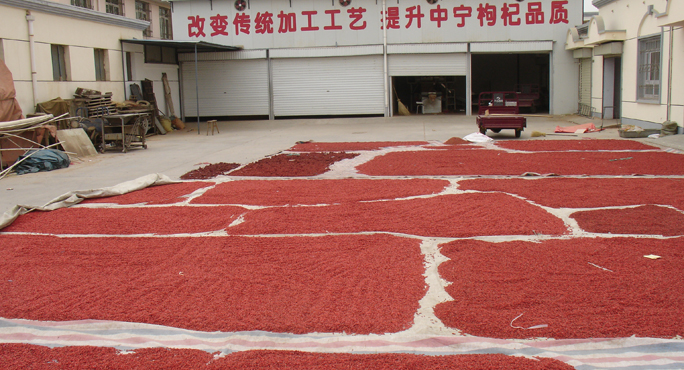Photo by Chris Kilham
For many years, the World Health Organization (WHO) has reported problems with high pesticide levels and industrial contaminants in some herbs. Over the past couple of years, both the American Botanical Council and the American Herbal products Association have identified ongoing problems with contamination. Much of the scrutiny of herbs focuses on those from India and China, where environmental safety laws are lax – and where contamination is sadly common.
Now a new study, entitled Chinese Herbs: Elixir of Health or Pesticide Cocktail continues this scrutiny. Sponsored by the environmental group Greenpeace, the report exposes unsafe practices of overuse of pesticides, use of banned pesticides, and high levels of these toxic agents in many Chinese herbs. The report stands to damage trade in Chinese herbs, which have repeatedly come under fire for safety concerns due to contamination.
As the world’s largest supplier of herbs, China has a lot to lose. Revenues from Chinese herbal exports total in the hundreds of millions of dollars. And given that Chinese people rely heavily on herbs for health, the Chinese population is at risk as a result of significant health problems arising from poisons in their natural medicines.
Traditional Chinese Medicine – also known as TCM – is one of the oldest systems of health care in the world. Some TCM texts date back to over 3,000 years ago. At the heart of TCM is the use of over 11,000 herbs. Employed almost always in formulas of several herbs at a time and typically boiled into concentrated teas, herbs are essential to the practice of TCM. Apothecaries in China and in Chinatown areas in Europe and the United States carry a plethora of Chinese-grown or wild-harvested herbs.
According to the study, Greenpeace sampled 65 batches of herbs, finding pesticide residues in 48 of the samples. In six samples, researchers found highly toxic banned pesticides. In over 30 samples, 3 or more pesticides were discovered. One widely used herb, Sanqi flower, had residues of 39 pesticides. Wolfberry, otherwise known as Goji, contained residues of 25 pesticides. Widely regarded as a superfood and a healthy snack, the high levels and broad variety of pesticides in Goji diminish that berry’s lustre as a health enhancer. Chrysanthemum, widely used in tea, was also heavily contaminated.
China is the world’s largest user of agricultural pesticides. Application of pesticides directly onto herbal crops, as well as contamination of soil and water by pesticides used on other crops, adds up to a dangerous environmental and health situation. China’s 600 million farmers use over two million tons of pesticides per year. Most of that use goes entirely unregulated, and oversight of the country’s guidelines concerning pesticides is scant.
The country has a history of food-related scandals, such as the melamine poisoning of milk, toxic levels of pesticides in ginseng, and other problems. Pesticides used in China regularly contaminate water supplies, running into rivers, lakes and streams. In recent years the country has had poisoning problems with contaminated ginger, chives and cowpeas.
At a time when acceptance of herbal medicine is high, the presence of toxic agents in herbs creates anxiety and concern among those who seek natural remedies. And the contamination problem isn’t limited to bulk herbs from China. Many prepared Chinese herbal formulas in tablets, capsules and other forms also contain highly toxic pesticides, casting doubt on the entire category of Chinese herbal remedies. How do you know which Chinese herbs are safe? You don’t. Until Chinese health authorities and environmental officials begin to take this matter seriously, the best advice you can follow is to seek your remedies elsewhere.


